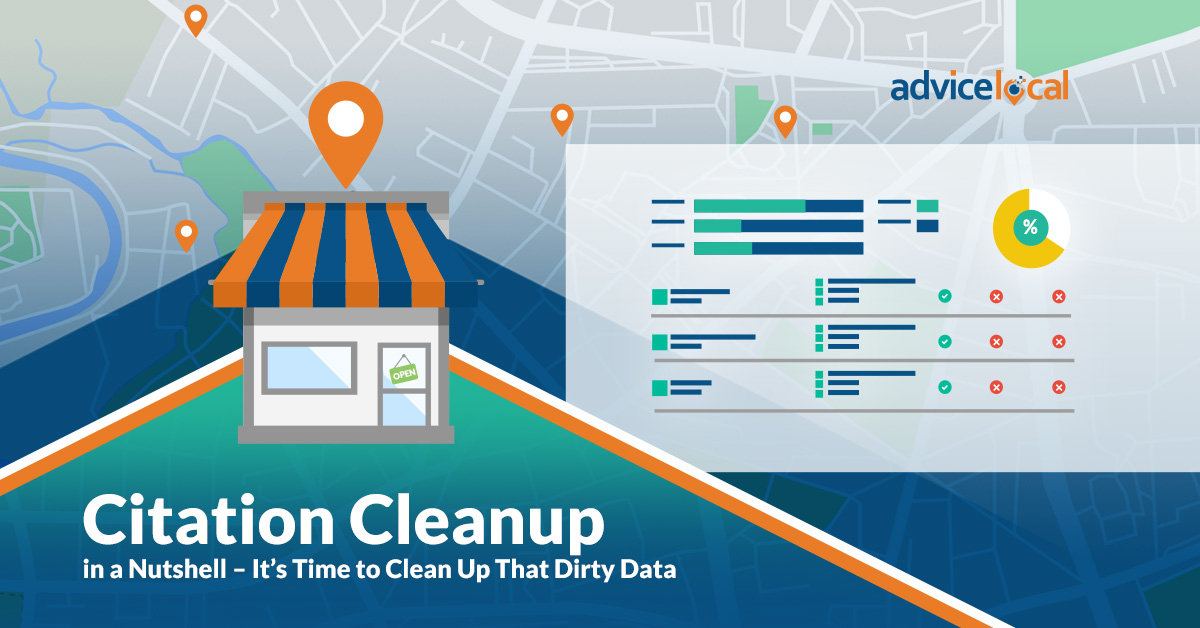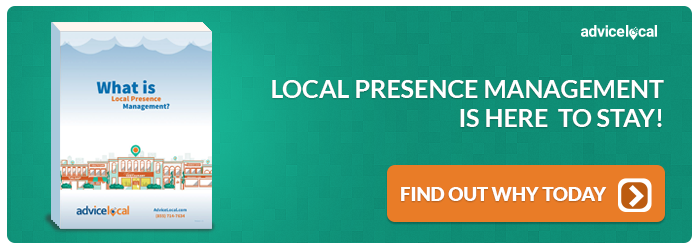When it comes to bad data or dirty data, just the sight of it gets my goat! It’s my mission – and my company’s – to clean up citations around the web. The reason is simple: Local citations can make or break a business’ online presence. That’s why they are so important to me and the team at Advice Local.
When a business’ data is accurate, citations are a great way of reaching even more potential customers in the business’ area. But when citations present inaccurate or old information, the business risks losing consumer trust. Did you know that 80 percent of consumers lose trust in local businesses if they see incorrect contact details or business names online?
A citation audit is essential for any business, large or small, but particularly for local and multi-location businesses and brands. Businesses like these rely on accurate name, address and phone number (NAP) data for potential customers to find them online and offline.
Years ago, consumers would get out the phone book, rely on word-of-mouth, and walk or drive around to find a local business. But with the creation of search engines, why would you complicate a process that could be as simple as typing – or speaking – a few keywords?
Getting to Know Citations
To review, a citation is any mention of a business whether online or in print. With the “always on” focus of today’s world, we will take a solid look at online. Online citations typically include the business’ NAP data and the website URL.
Local citations help local businesses get found online in a specific geographic area. They also help improve SEO and visibility in local search results – particularly mobile. If a citation includes a link to the business’ website, that’s even better.
Citations can be found online in data sources such as directories, data aggregators, social media, review sites, and map listings like Google Business Profile (formerly Google My Business) and Bing Places.
Why Clean Citations Are Essential
If you didn’t shower too often, you couldn’t exactly consider yourself clean! The exact same thing happens with citations.
In order for a business’ data to always be correct, the information needs to be properly maintained – essentially kept clean – not only for the main listings, but for every directory and data aggregator where a business is mentioned online. Inaccurate data on a citation not only reflects badly on the business, it makes potential customers lose trust.
An astounding 68 percent of consumers would stop using a local business if they found incorrect information in online directories. Knowing this, can you imagine how many potential clients a local business can be missing out on? It’s frightening! We understand that clean citations are absolutely key for a successful business, and you should too.
Take a Local Citation Audit One Step at a Time
There are certain things a business can do to stay ahead of the game, and it all starts with an audit. Businesses need to make sure they gather all the citations they can find, and document any inaccuracies. Afterwards, they will need to manually go back to them and submit the right information. Take a look at the following steps:
- Search online for any citations that a specific business may have. Document all potential name, address and phone number variations. But hold on – don’t correct the data right away! That will come later.
- Use free tools to find business citations. Advice Local, for example, offers a simple, thorough and accurate free Online Visibility Report.
- Track down bad data with Google Advanced Search Operators. Use all the variations you documented during the first step.
- Find citations with incorrect business names. Search using the business’ phone number and a minus sign followed by the business’ name in quotation marks, to exclude results with the business’ name.
- Use the data collected to determine which citations need to be cleaned up. Start with those on the most popular websites, local directories, and industry-specific directories.
- Manually clean up the business’ data by updating their NAP information. Start with any government sources, then continue with the phone company and other utilities. Next up are the data aggregators – Infogroup, Neustar Localeze and Foursquare. Follow it with Dun & Bradstreet, Factual, Google Business Profile & Bing Local.
- Use Whois to find contact information for any stray citations that may need further attention. Any contact should be done through the business’ email address.
Wow – not only did we just deliver a short & sweet how-to on finding and cleaning up citations, we have an informative infographic to walk you through the process!
Citation Cleanup In a Nutshell

What’s Next in the Citation and Audit Cleanup Process?
We’re sure you noticed that this important process is easier said than done. That’s why we invite you to share this citation audit and cleanup infographic with your clients, customers and friends. Simply look down to the bottom of this post to embed it directly on your blog.
If you need more help with citation cleanups, you can also download the The Complete How-To Guide on Local Citation Audit and Cleanup. You’ll get a step-by-step walk-through and deeper insights on why citations are important, how bad data happens, and much more.
Help Is Always Available
When they don’t have the proper tools, a citation cleanup process can be stressful for local businesses. Here at Advice Local, submitting optimized and accurate business NAP data around the web is our mission – and our expertise. Request a demo today to see how our experienced team helps local businesses get found online every day.




